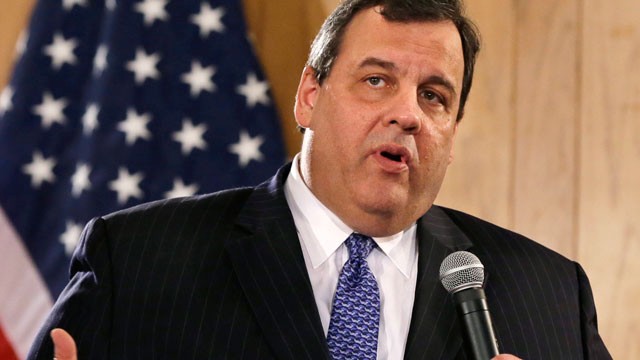The Newtown, Conn., shooting has prompted a handful of states to enact tougher gun laws, and blue-state governors have led the way.
With Congress yet to agree on any federal changes, Maryland Gov. Martin O’Malley and New York Gov. Andrew Cuomo — both thought to be Democratic presidential contenders in 2016 — have shepherded tighter restrictions in their states. In Connecticut, Democratic Gov. Dan Malloy signed a new gun law earlier this month.
Add Chris Christie to that list.
On Friday, the New Jersey Republican governor and possible GOP White House hopeful unveiled a new plan for tighter gun laws in the Garden State.
Previously on the record as supporting some gun restrictions on the books in New Jersey — some of the toughest in the nation — the governor took an active turn on the gun issue. Christie proposed requiring mental-health adjudication records be added to background checks, banning the Barrett .50 caliber rifle, new and stiffer penalties for straw-purchasers and gun trafficking, parental consent for violent video game sales, and making it easier for doctors to mandate commitment or outpatient treatment for mental-health patients deemed dangerous. He added a mental-health working group to a state gun-violence task force, charged with making recommendations.
“The existing system that we have placed in New Jersey is much stronger already than the proposed Toomey-Manchin legislation that failed in the Senate earlier this week,” Christie said at a news conference on Friday. “The [state] assembly has put some bills forward, the [state] senate’s gonna put some bills forward, I’ve now put bills forward, and now we have to let the process work to reach consensus of what works for the people of the state.”
Highlighting a political conundrum for Christie, the gun push will likely play well in his home state, which already restricts guns more aggressively than most — but it might raise concerns among Republicans elsewhere, posing a hurdle for Christie if he seeks the presidency in 2016.
“It’s only gonna hurt him,” said Keith Appell, a former adviser to Steve Forbes’ 2000 presidential campaign, the Swift Vets and POWs for Truth campaign, and Florida Gov. Rick Scott’s 2010 campaign.
“He may come right at it and try to stare people down by sheer force of his personality and attempt to convince people that he’s one of them in spite of these steps,” Appell said. “He will find, as many have before him, that it won’t play. It’ll slam him right back in the face.”
In his new push, Christie has bucked conservative orthodoxy for the second time this year. In February, he joined seven other Republican governors in accepting an expansion of state Medicaid programs under President Obama’s health-reform law, the Affordable Care Act.
“It is clear over the past two or three months that he really worked to prioritize his New Jersey constituency over his national conservative constituency, and this is kind of groundbreaking, because up until about two or three months ago, we saw a series of actions that really defied public opinions in the state,” said Prof. Brigid Harrison, who teaches political science and law at Montclair State University in Montclair, N.J.
Harrison referenced Christie’s cuts to family-planning funding in the state budget.
Christie already has some problems with conservative activists. After supporting a federal Hurricane Sandy relief bill, he was not invited to the Conservative Political Action Conference, an annual confab that hosts top conservative politicians for speeches to a large crowd of activists in the Washington, D.C., area.
—
Click below for the full article.
http://abcnews.go.com/Politics/OTUS/chris-christies-gun-gamble/story?id=19018480









